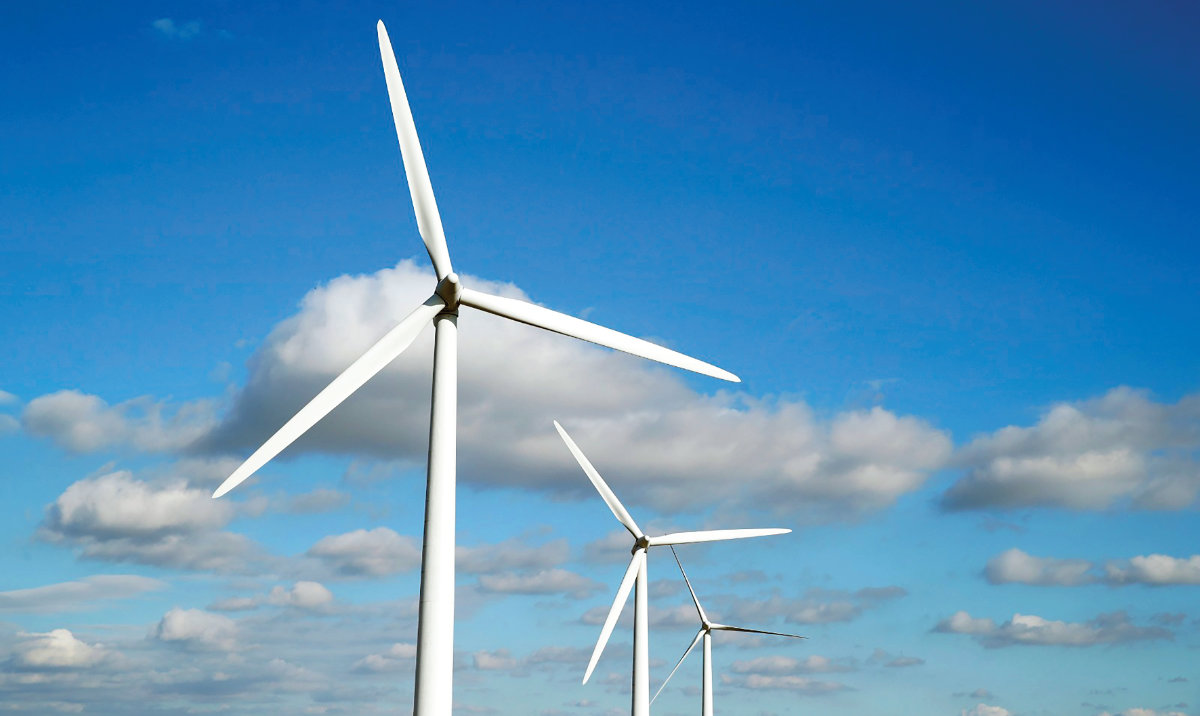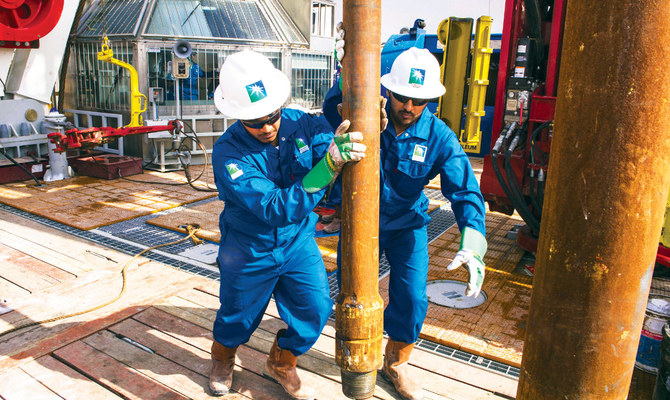RIYADH: Around 62 percent of executives in the energy sector expect the world to reach net-zero emissions by 2060 or later, a study showed.
The survey, carried out by management consulting firm Bain & Co., revealed that this view is consistent across most regions and is most strongly held among oil and gas business leaders.
“Despite ENR (energy and natural resources) companies’ continued investments in decarbonization, about 62 percent of executives now anticipate the world will reach net-zero by 2060 or later, up from 54 percent in last year’s survey,” said Bain & Co.
Most of the participants in the survey pointed out the financial viability of energy transition projects as a major concern.
According to these ENR executives, the greatest obstacle to scaling up their transition-oriented businesses is finding enough customers willing to pay higher prices to create sufficient return on investment.
“Energy transition looks slower as it becomes even more difficult to ensure adequate investment returns and progress diverges across a fragmenting world,” said the report.
It added: “In our view, the direct impact of higher interest rates on the cost of transition projects is one of the most important stories of 2023 and is likely shaping executives’ perspective on this issue.”
The survey also indicated that taxes and carbon pricing, along with government subsidies, are the top levers which will influence customer behavior.
Middle East executives confident about energy transition-related businesses
The report highlighted that executives in the Middle East, Asia-Pacific, and Latin America are feeling more optimistic about the prospects of their transition-oriented growth businesses.
The survey results also revealed that ENR officials in these regions believe transition-related businesses will bring positive impacts to their company’s valuation and profits by 2030.
Speaking to Arab News, Paul Sullivan, non-resident senior fellow of the Global Energy Center at the Atlantic Council also shared similar views and noted that countries in the Middle East have all the potential to spearhead the transition journey.
“GCC countries may in the end be more successful at some transitions because they need the transitions to help economic diversification and economic diplomacy. And mostly they can pay for the energy transition with their oil and gas revenues. Without those revenues, it would be near impossible to do this,” said Sullivan.
In February, Saudi Aramco CEO Amin Nasser said the company is eyeing continuity in the production of all types of energy including oil and gas, along with renewables.
Two months earlier, Nasser said the amount of renewable energy coming to the international market falls short of fulfilling the rising demand.

He said more investments are needed in the oil and gas sector to ensure a smooth energy transition.
The Bain & Co. report said energy executives consider North America as the most attractive region for transition-related investments, but the stability of government policies remains a concern.
According to the report, over 70 percent of the executives worldwide who took part in the survey revealed that reducing policy uncertainty would very significantly improve their ability to scale up transition-oriented businesses.
“Many of the programs started by governments in the recent past and present may not survive the political changes that could be coming. Many governments are listening to their voters and are already backing down from some energy transition measures,” added Sullivan.
Jiyas Jamal, an Indian lawyer who is also a climate activist, shared similar views, and said energy transition is happening slower, but countries all across the globe have started taking the climate issue seriously.
“I do agree that energy transition is happening slowly. However, there is a growing awareness all over the world regarding the issue of climate change. Even though financial viability is a major concern among ENR companies, the trend is reversing now, and several big names in the sector, especially in the Middle East region are seriously investing in renewable projects,” Jamal told Arab News.
The impact of AI on energy transition
The report said advanced technologies, such as artificial intelligence, have a crucial role to play as the world sails toward a sustainable future.
According to the survey, the share of ENR executives who believe AI and digital processes will have a significant effect on their businesses by 2030 increased from 56 percent in 2023 to 65 percent in 2024.
BACKGROUND
• Most of the participants in the survey pointed out the financial viability of energy transition projects as a major concern.
• According to these ENR executives, the greatest obstacle to scaling up their transition-oriented businesses is finding enough customers willing to pay higher prices to create sufficient return on investment.
• The Bain & Co. report said energy executives consider North America as the most attractive region for transition-related investments.
Improving maintenance, production, and the supply chain are currently among the most promising generative AI applications across ENR sectors, the report added.
However, executives are skeptical that generative AI will play a significant role in reducing emissions due to its significant energy requirements.
“AI could be an increasingly bigger part of the transition in many countries and across countries. But AI is a big consumer of energy. This energy consumption needs to be considered as a factor in the energy transition and for climate and environmental issues in the future,” said Sullivan.
He added: “No energy is clean over its supply chains and life cycles. No energy is free — contrary to some of the ‘renewables’ salespersons. No energy is truly renewable when the technologies reach their lifetimes and need to be decommissioned. So, even the concept of renewable is up to question and is more of a continuum than an absolute.”
Energy transition: the funding dilemma
Talking about the energy transition progress in the global north and south, Sullivan said funding is an issue for all countries.
He opined that richer countries have more capital that can be put into the transition efforts, but they are excessively relying on tax breaks and subsidies.
“Developed countries have built up massive public debts and yet many feel free to spend tens of billions of mostly borrowed money increasing their debt to go forward with the energy transition. This is not sustainable at all,” noted Sullivan.
He added: “Many leaders in the poorer parts of the world do not have climate as a top issue and the energy transition is very expensive. For poorer and less developed countries, they have many other more pressing problems to deal with, such as poverty, education, health, and other crushing economic and political issues.”
For his part, Jamal concluded that energy transition is one of the crucial agendas the world is facing, and it should be achieved effectively, even though a little delay happens in the process.
“The world is facing the heat of climate change. All the countries should try to achieve their net-zero targets for our future generations. Developed nations should continue lending their helping hand to the least developed, as this is an issue which can be addressed with cooperation,” he said.















